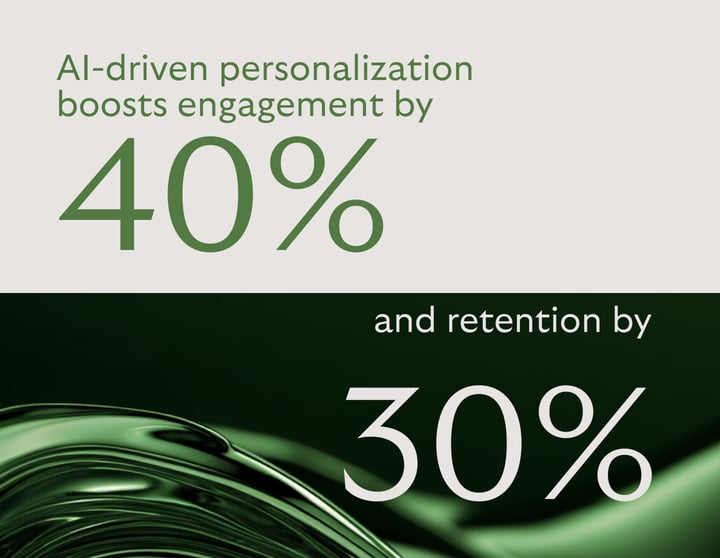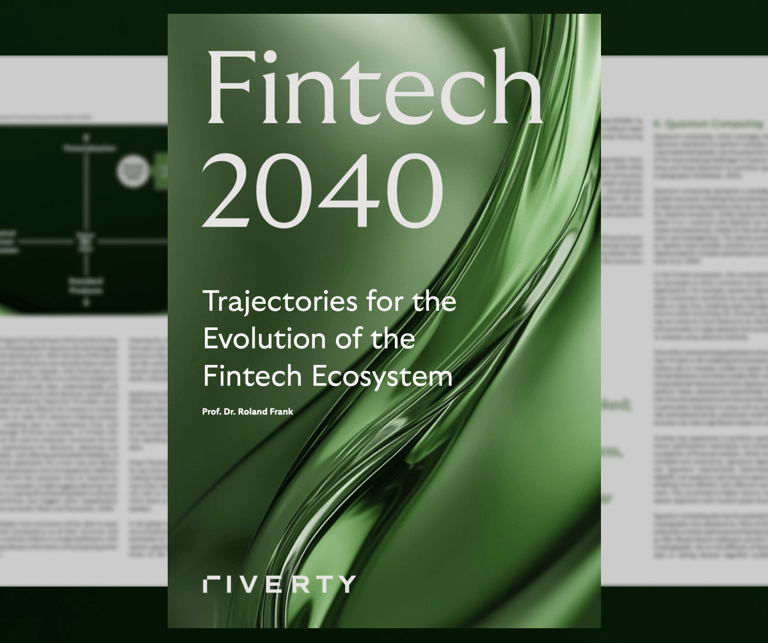How AI in fintech is powering hyper-personalized finance
AI in fintech is making hyper-personalized finance a reality – no longer a futuristic concept. The next generation of banking tailors every experience to the individual. Acting as intuitive payment companions, these solutions are built on human-centric principles that truly empower users with greater financial control and wellbeing. Here’s how it works – and what it means for your business.

Why AI in fintech is reshaping the future of financial services
The financial industry is undergoing a fundamental transformation as AI in financial services drives a shift from static customer segmentation to dynamic, real-time personalization. Traditional methods of categorizing customers into broad segments based on demographics or account balances are rapidly becoming obsolete. Instead, AI and fintech integration enables institutions to understand and respond to individual behaviors, emotional states, and financial goals with unprecedented precision.
According to recent industry research, financial institutions implementing AI-driven personalization are seeing engagement rates increase by up to 40% and customer retention improve by 30%. This represents a significant competitive advantage in an increasingly crowded marketplace.
The market drivers behind this transformation are clear. Gen Z and younger millennials have grown up with hyper-personalized digital experiences from streaming services, e-commerce platforms, and social media. These consumers now expect the same level of personalization from their financial providers. Meanwhile, fintech disruptors are setting new standards for user experience, and open banking infrastructure is making it easier than ever to connect financial data across platforms.
How financial institutions can prepare for AI in fintech
For established financial institutions looking to leverage AI in fintech, developing certain key capabilities is essential. Organizations need data agility to collect, integrate, and analyze information from multiple sources in real-time. They require sophisticated contextual analytics to understand customer behavior in different situations. And, perhaps most importantly, they must implement robust ethical AI governance to ensure responsible use of personal financial data.
To successfully implement AI and fintech solutions, financial organizations should focus on rethinking customer journeys around three key elements:
- Digital financial assistants: AI-powered tools that understand individual financial patterns and provide timely, relevant guidance, serving as reliable payment companions that empower users through a deeply human-centric approach
- Adaptive credit systems: Dynamic lending approaches that adjust to changing customer circumstances
- Personalized financial nudges: Targeted interventions that encourage positive financial behaviors based on individual psychology
A comprehensive preparation checklist for institutions includes:
- Integrated data systems that break down silos between departments
- Privacy-by-design architecture that protects customer information
- Cross-functional AI/UX collaboration teams that ensure technology serves human needs
The Fintech 2040 vision shows us how these elements combine to create truly personalized experiences through micro-personas, emotionally intelligent financial sidekicks, and contextual awareness that anticipates customer needs before they arise.
Innovation with responsibility: Aligning AI in fintech with trust and ethics
While the potential of AI in fintech is enormous, responsible implementation is crucial for long-term success. Hyper-personalization must be privacy-aware to build and maintain trust. This means giving customers transparency and control over how their data is used, implementing strong security measures, and ensuring that AI systems make explainable decisions.
Algorithmic transparency is particularly important when financial decisions are involved. Customers deserve to understand the factors that influence their credit scores, investment recommendations, or insurance premiums. Financial institutions must also be vigilant about mitigating bias in AI models to ensure fair treatment across different demographic groups.
Ethical applications of conversational AI in financial services and generative AI in financial services can actually expand financial inclusion rather than limiting it. For example, dynamic credit scoring that looks beyond traditional metrics can help underserved populations access financial products previously unavailable to them. By considering alternative data sources and contextual factors, AI can identify creditworthy individuals who might be overlooked by conventional systems.
Case for action: Why future-ready leaders must act now on AI in fintech
The consequences of falling behind on AI-powered personalization are serious. Financial institutions that fail to adapt risk losing relevance, customer retention, and ultimately revenue to more innovative competitors. Today’s experimental AI applications will soon become tomorrow's expected standard of service.
Forward-thinking organizations are already building competitive advantages through AI in fintech, enabling:
- Predictive financial services that anticipate customer needs
- Embedded finance capabilities that connect with broader digital ecosystems
- Enhanced loyalty programs driven by deeper customer understanding
The path forward requires a shift from isolated AI experiments to comprehensive ecosystem thinking. This means collaborating with technology partners, UX designers, and data scientists to create integrated experiences that feel natural and valuable to customers.
For senior leaders, the imperative is clear: innovate early and scale responsibly. Organizations that begin building their AI in fintech capabilities now will be best positioned to lead as hyper-personalization becomes the new standard.
Where AI in fintech, trust, and financial wellbeing meet
AI in fintech is enabling a new generation of real-time, emotionally intelligent financial experiences that respond to individual needs and circumstances. By functioning as empowering payment companions rather than mere tools, these human-centric solutions create meaningful relationships with users, putting their financial wellbeing at the center of every interaction. The transformation from generic to hyper-personalized finance is not just a technological shift but a fundamental reimagining of the relationship between financial institutions and their customers.
The strategic urgency is clear, but so is the long-term value. Financial organizations that successfully implement AI-driven personalization will create stronger customer relationships, improve financial outcomes, and ultimately build more sustainable businesses.
Read the Fintech 2040 Whitepaper to explore the next wave of AI-powered personalization and discover how AI in fintech will transform customer journeys in financial services.
Shape the future of finance: Get the complete analysis
Read the Fintech 2040 Whitepaper to explore the next wave of AI-powered personalization and discover how AI in fintech will transform customer journeys in financial services.

Frequently Asked Questions
Hyper-personalized finance uses AI in fintech to tailor financial services to individual needs, behaviors, and emotions in real time. This goes beyond traditional personalization by adapting continuously to changing circumstances and preferences.
AI analyzes user data, spending habits, emotional signals, and context to deliver tailored recommendations and automate decisions, powered by AI in fintech platforms. Machine learning algorithms identify patterns and preferences that would be impossible for humans to process at scale.
Examples include custom savings goals based on individual spending patterns, real-time budgeting advice that adapts to changing circumstances, loan terms that adjust to personal financial situations, and predictive financial nudges that encourage beneficial behaviors. These innovations are driven by AI in fintech.
It improves customer satisfaction, loyalty, and financial well-being while increasing efficiency and ROI for institutions, made possible by AI in fintech. Personalized services create stronger engagement, better financial outcomes, and more sustainable customer relationships.
Key risks include data privacy concerns, algorithmic bias that could disadvantage certain groups, and over-reliance on automation that might not account for unique human circumstances as the use of AI in fintech expands. These risks require transparent, ethical AI use with appropriate human oversight.
